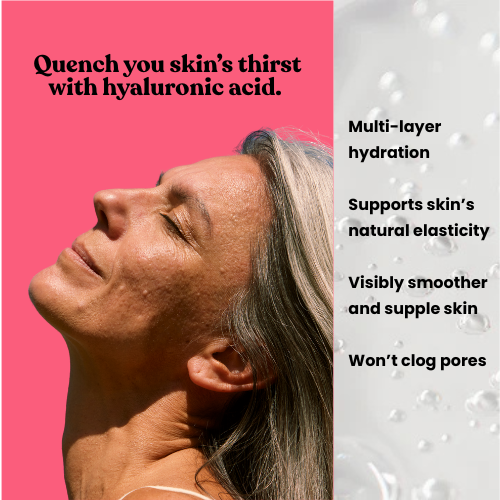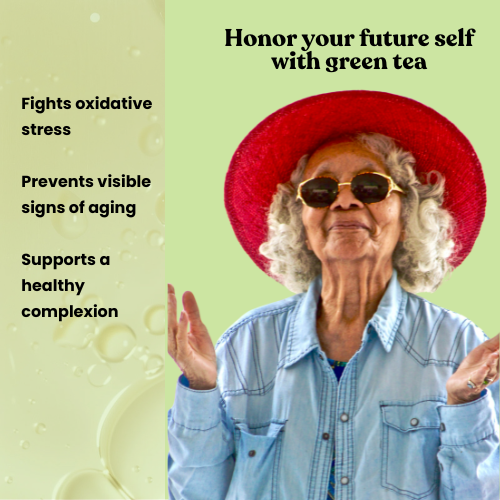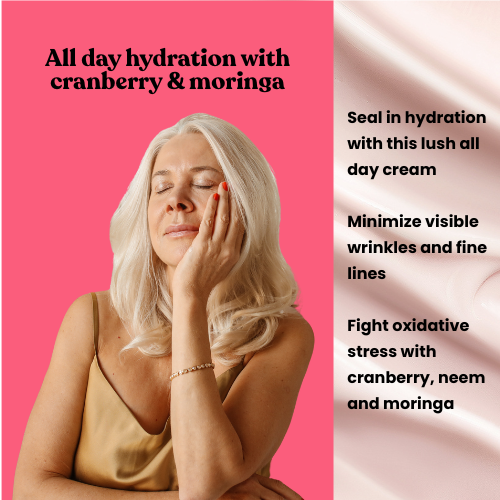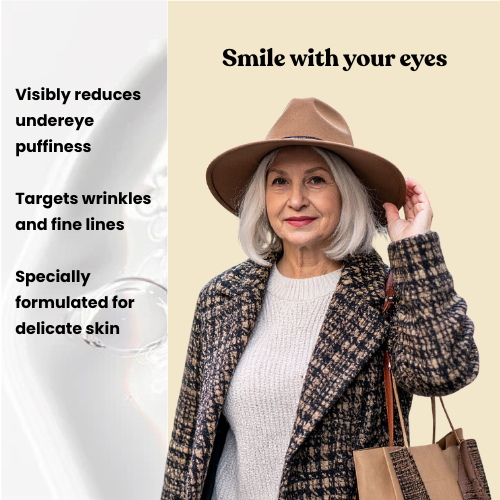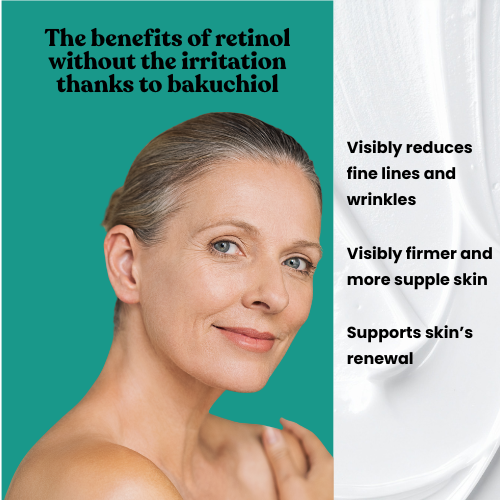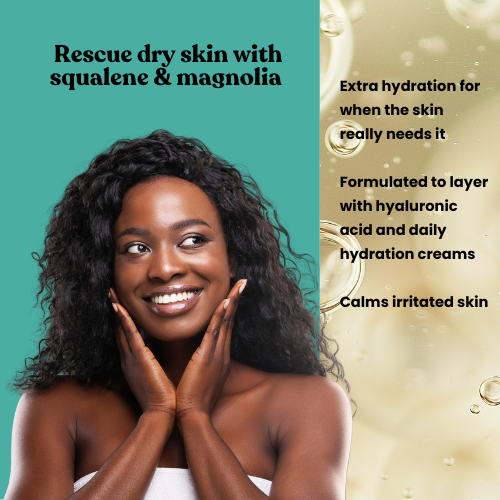-

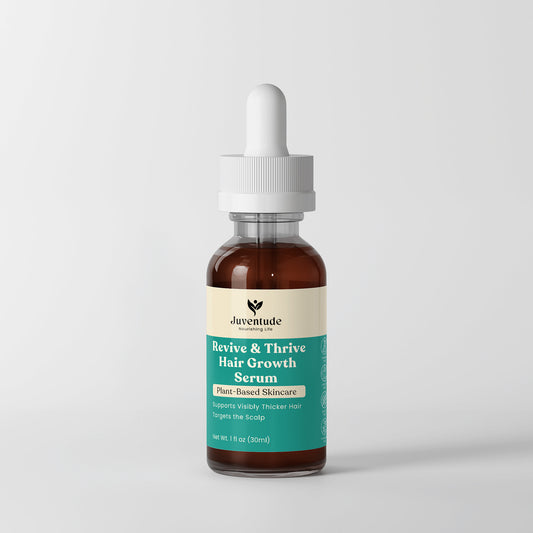 Sold out
Sold outChemo Recovery Care - Gift Set
Regular price $273.99 USDRegular price Sale price $273.99 USDUnit price perSold out -

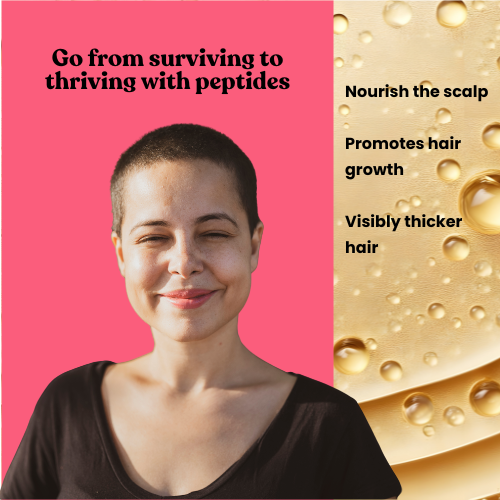 Sold out
Sold outRevive & Thrive Hair Growth Serum
Regular price $64.99 USDRegular price Sale price $64.99 USDUnit price perSold out -
Gentle Cleanser
Regular price $24.99 USDRegular price Sale price $24.99 USDUnit price per -
Skin Harmony Toner
Regular price $26.99 USDRegular price Sale price $26.99 USDUnit price per -
Deep Hydration Serum
Regular price $34.99 USDRegular price Sale price $34.99 USDUnit price per -
Green Tea Shield Serum
Regular price $23.99 USDRegular price Sale price $23.99 USDUnit price per -
Everyday Hydration Cream
Regular price $27.99 USDRegular price Sale price $27.99 USDUnit price per -
Restorative Eye Gel
Regular price $35.99 USDRegular price Sale price $35.99 USDUnit price per -
Nighttime Bakuchiol Renewal Cream for Sensitive Skin
Regular price $42.99 USDRegular price Sale price $42.99 USDUnit price per -
Dry Rescue Drops
Regular price $22.99 USDRegular price Sale price $22.99 USDUnit price per
Navigating Your Journey with Confidence
Your Guide to Managing the Cosmetic Side Effects of Chemotherapy
Undergoing chemotherapy is a testament to your strength and resilience. While the focus is rightly on your health and recovery, we understand that the visible side effects can take an emotional toll. You are not alone in this, and there are ways to manage these changes, helping you feel more like yourself every step of the way. This guide is here to offer support and practical solutions for the cosmetic challenges you may be facing.
Understanding and Managing Common Changes
Your body is working hard to heal, and that can bring about some temporary, but often distressing, changes to your appearance. Here’s a look at some common side effects and gentle ways to care for yourself through them.
Hair Loss (Alopecia)
Losing your hair, whether from your head, eyebrows, or eyelashes, is often one of the most challenging parts of treatment.
- Gentle Care: Treat your scalp with kindness. Use soft brushes and mild, sulfate-free shampoos. Pat your scalp dry instead of rubbing.
- Embrace Your Style: This is a chance to explore what makes you feel comfortable and confident. Many find comfort and style in beautiful scarves, soft hats, or elegant wigs.
- Support for Regrowth: After treatment, your hair will likely return. Nurture your scalp with gentle products to create a healthy environment for new hair growth.
Why Does Hair Sometimes Grow Back Differently?
After undergoing treatments such as chemotherapy, many people notice that their hair grows back with changes in texture, thickness, or even color. This happens because chemotherapy targets rapidly dividing cells, including the hair follicles, which can temporarily disrupt their normal function. When hair regrows, the follicles may behave differently at first, leading to new growth that appears curlier, straighter, finer, or coarser than before. Over time, as the follicles recover fully, hair often returns to its original characteristics, though in some cases, these changes may remain permanent. It’s a natural part of the body’s recovery process and a reminder of its resilience.
How long does hair regrowth take?
The timeline for hair growth can vary widely depending on individual factors such as age, genetics, overall health, and the specific cause of hair loss. Generally, hair begins to regrow a few weeks to a couple of months after the underlying cause is resolved, such as the conclusion of chemotherapy or recovery from a significant illness. On average, hair grows about half an inch per month, meaning it may take several months to a year for hair to return to a noticeable length. Full restoration to the original length and thickness can take even longer, often requiring patience and proper care throughout the process.
What can you do to support hair regrowth?
To support hair regrowth, there are several strategies you can implement. Maintaining a balanced diet rich in vitamins and minerals is crucial, as nutrients like biotin, vitamin D, iron, and zinc play a key role in hair health. Gentle hair care practices, such as avoiding harsh chemical treatments and heat styling, can help protect fragile, regrowing strands. Regular scalp massages may also promote blood circulation to hair follicles, potentially stimulating growth. Additionally, incorporating targeted treatments like hair serums, as recommended by a healthcare professional, can support the regrowth process. Staying hydrated, reducing stress through relaxation techniques, and ensuring adequate sleep are further lifestyle adjustments that can encourage healthy hair regeneration over time.
Skin Dryness and Sensitivity
Chemotherapy can leave your skin feeling dry, itchy, and more sensitive to the sun than usual.
- Hydrate and Soothe: Use thick, fragrance-free moisturizers to lock in moisture, especially after bathing. Look for calming ingredients like rose water, aloe, chamomile, moringa and neem. Additionally, hydration serums containing hyaluronic acid and squalane into your routine to lock in moisture and maintain a plump, healthy complexion.
- Protection is Key: Your skin is extra vulnerable right now. Apply a broad-spectrum sunscreen with at least SPF 30 every day, even when it’s cloudy. Incorporate skincare products with green tea extract, as it is rich in antioxidants that help combat environmental stressors like pollution and UV damage.
- Mindful Makeup: If you choose to wear makeup, opt for mineral-based or hypoallergenic formulas designed for sensitive skin to avoid irritation.
Potential for Premature Aging
- Preventing Premature Aging: Chemotherapy can accelerate the aging process, leading to premature signs like wrinkles, fine lines, and reduced skin elasticity. To counteract this, it's crucial to prioritize protection and rejuvenation. Continue using a broad-spectrum sunscreen daily, even indoors, as your skin may be more sensitive to UV. Incorporate skincare products rich in antioxidants like green tea extract, vitamins C and E to help combat cellular damage. Hydration is key, both internally by drinking plenty of water and externally with gentle, nourishing moisturizers. A balanced, nutrient-rich diet and consistent, restorative sleep are also vital for supporting skin health and resilience post-treatment.
Nail Brittleness and Discoloration
Your fingernails and toenails may become brittle, discolored, or develop ridges.
- Protect Your Hands and Feet: Wear gloves when doing household chores to protect your nails from harsh chemicals and excessive water. Keep your nails trimmed short to prevent them from snagging and breaking.
- Moisturize Regularly: Apply cuticle oil or a rich hand cream to your nails and cuticles daily to keep them hydrated and prevent cracking.
- Avoid Harsh Treatments: Steer clear of acetone-based nail polish removers and acrylic nails, which can further weaken your nails.
You Are More Than Your Reflection
It’s completely normal to feel a sense of loss or frustration when you don’t recognize the person in the mirror. Remember that these changes are a temporary part of your healing process. Your courage, your spirit, and your identity shine brighter than any side effect. Be gentle with yourself, celebrate your strength, and know that you have a community of support behind you.
Find Comfort and Care
You deserve to feel as good as possible during your treatment. We have curated a collection of gentle, effective products and resources specifically designed to help you manage the cosmetic side effects of chemotherapy with confidence and grace.










